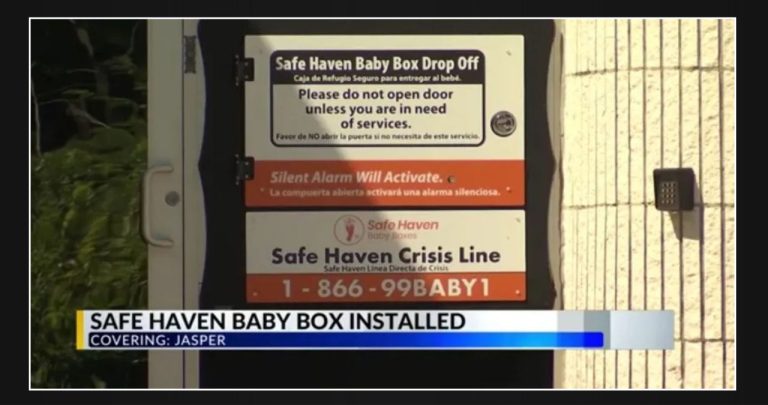For three decades, Kenneth Sharpton-Glasgow, an activist from Alabama, has dedicated his life to advocating for the voting rights of individuals with felony records.
Before his 11-month stint in federal prison on charges of tax evasion and drug distribution, he held a different perspective. However, during his time incarcerated, he found himself locked up alongside individuals who participated in the riot at the U.S. Capital on January 6th, 2021.
In a recent phone interview from the car after being released from prison, Sharpton-Glasgow expressed his surprise at the current political climate. He pointed out that a presidential candidate, Trump, has a record of 34 felonies. Sharpton-Glasgow couldn’t help but wonder if this turn of events is a sign from God.
In an interview with AL.com after being released from prison earlier this week, Sharpton-Glasgow expressed his optimism for the upcoming election year. He sees an opportunity to make felon disenfranchisement a bipartisan issue, especially since both former President Trump, a Republican, and Hunter Biden, the son of current Democratic President Joe Biden, have felony convictions.
At the age of 59, Glasgow had been using only his last name for most of his life. He is the half-brother of renowned activist Rev. Al Sharpton, but he has been residing in Dothan since childhood, when his mother, Tina Glasgow, brought him there.
Born in 1964 to parents Al Sharpton Sr. and Ada Sharpton, Rev. Al Sharpton’s family expanded when his father had a son, Kenneth Glasgow, with Ada’s teenage daughter from a previous marriage, Tina Glasgow, who came to live with the family.
Growing up, Sharpton-Glasgow had a complex relationship with his name. Despite being born as Kenneth Sharpton, he preferred to use Glasgow. Following a traumatic incident in which his brother was stabbed during a protest in New York City, he started using his mother’s name to safeguard himself from any potential retaliation.
According to ProPublica, Sharpton-Glasgow, who was imprisoned on drug charges for 14 years in Florida, utilized his time in jail to study religion and ultimately convert to Christianity. It was during this time that he concocted the idea for TOPS – The Ordinary People Society. After his release in 2001, he returned to Dothan and began working as a preacher and community activist. His main focus was on aiding those who have been incarcerated and individuals caught up in the drug trade.
Al Sharpton-Glasgow was involved in various campaigns aimed at restoring voting rights to felons in Alabama. His efforts paid off in 2017 when a bill was passed, allowing many individuals convicted of drug crimes to regain their right to vote. In addition, he was also actively involved in initiatives in Florida that focused on registering former offenders to vote.
Even though Glasgow was not the one who pulled the trigger, he faced an arrest for capital murder. Glasgow maintained that he was unaware of his passenger’s intentions to harm someone. After almost three years, the charges against him were eventually dismissed.
Sharpton-Glasgow admitted to tax evasion and drug charges in 2023. According to federal prosecutors, he misused over $1 million that had been donated to his nonprofit organization for personal expenses, neglected to file a tax return, and attempted to obtain disability benefits despite being fit enough to work.
Upon reporting to federal prison in August 2023, he experienced a stark contrast to his time in state prison in Florida. He noted a significant decrease in violence and an increase in resources available to the inmates. While incarcerated, he collaborated with fellow inmates on a project aimed at registering eligible inmates to vote.
Sharpton-Glasgow explained that individuals who have committed non-moral turpitude offenses are allowed to vote while in federal prison.
Sharpton-Glasgow is continuing to tackle the same issues he had been working on prior to his incarceration, but he also desires a new beginning following his release. As a result, changing his name is one aspect of this fresh start.
While he was in prison, Sharpton received a letter from his 97-year-old father, Al Sharpton, Sr. In the letter, his father requested that he change his name back to Sharpton as his final wish.
Al Sharpton, Sr. expressed his long-standing disappointment over the fact that his family’s significant achievements have not been credited to them. In a letter that was shared with AL.com, he wrote, “One thing that has always grieved me all these years is that no one could recognize your great accomplishments as belonging to the Sharpton family.”
Sharpton-Glasgow saw the letter as a symbol of hope after a tumultuous seven years. Despite this, he felt it was important to honor his mother’s perseverance in keeping and raising him by keeping her name.
Sharpton-Glasgow pointed out that throughout Biblical history, individuals who were touched, redeemed, or resurrected by God were often given a new name or had their name altered in some way. She believes that this is precisely what is happening to her now.
Until the court approves his return to Dothan, Sharpton-Glasgow will remain at the halfway house. His primary objective is to preach and step back from managing The Ordinary People Society. His efforts will continue to center on serving individuals on the fringes of society.
Sharpton-Glasgow pointed out that even prominent figures in the Bible, such as Paul and Peter, were imprisoned and still made significant contributions to religious texts. “Paul in the Bible, he was in prison, and he wrote two-thirds of the New Testament,” she said. “Jesus went through prison and the crucifixion. Peter wrote a letter from prison. People in prison are people.” This highlights the fact that individuals who are incarcerated should not be dehumanized or disregarded due to their circumstances.



